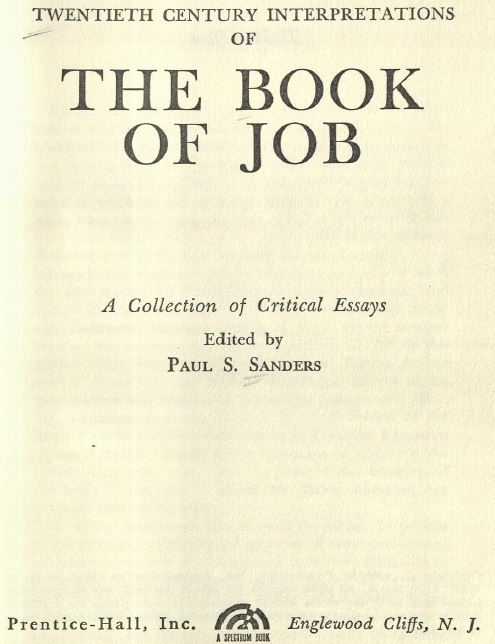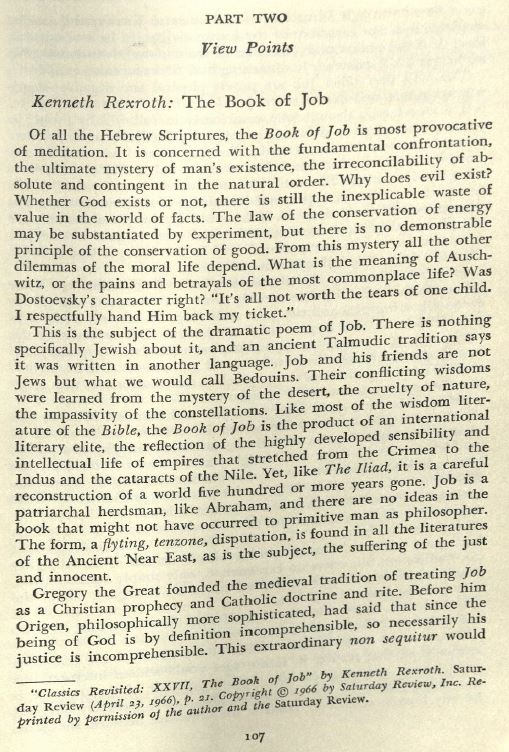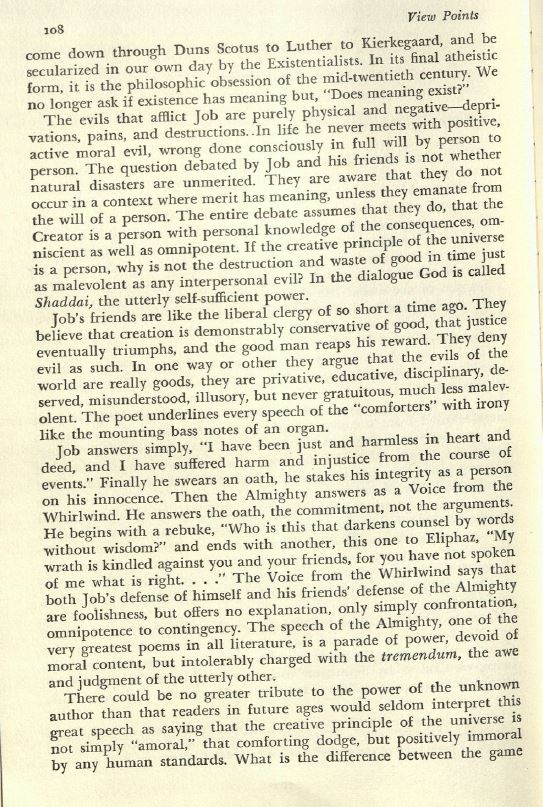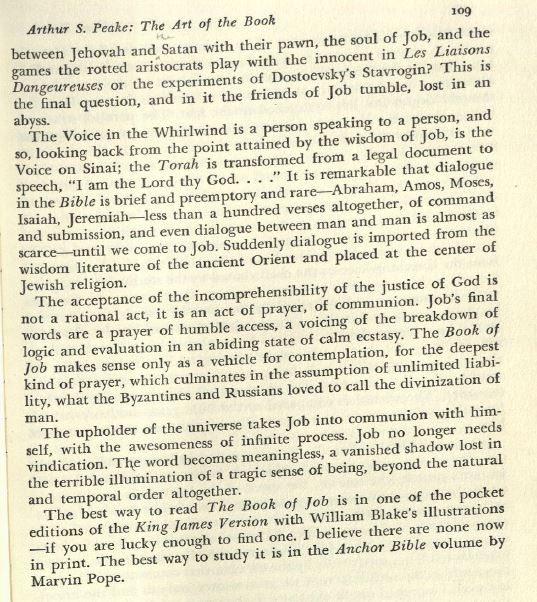Twentieth Century Interpretations
of
The Book of Job
A Collection of Critical Essays
Edited by Paul S. Sanders

Of all the Hebrew Scriptures, the Book of Job is most provocative of meditation. It is concerned with the fundamental confrontation, the ultimate mystery of man’s existence, the irreconcilability of absolute and contingent in the natural order. Why does evil exist? Whether God exists or not, there is still the inexplicable waster of value in the world of facts. The law of conservation of energy may be substantiated by experiment, but there is not demonstrable principle of the conservation of good. From this mystery all the other dilemmas of the moral life depend. What is the meaning of Auschwitz, or the pains and betrayals of the most commonplace life? Was Dostoevsky’s character right? “It’s all not worth the tears of one child. I respectfully hand Him back my ticket.”
This is the subject of the dramatic poem of Job. There is nothing specifically Jewish about it, and an ancient Talmudic tradition says it was written in another language. Job and his friends are not Jews but what we would call Bedouins. Their conflicting wisdoms were learned from the mystery of the desert, the cruelty of nature, the impassivity of the constellations. Like most of the wisdom literature of the Bible, the Book of Job is the product of international literary elite, the reflection of the highly developed sensibility and intellectual life of empires that stretch from Crimea to the Indus and the cataracts of the Nile. Yet, like The Illiad, it is a careful reconstruction of a world five hundred or more years gone. Job is a patriarchal herdsman, like Abraham, and there are no ideas in the book that might not have occurred to primitive man as philosopher. The form, a flyting, tenzone, disputation, is found in all literatures from the Ancient Near East, as is the subject, the suffering of the just and innocent.


